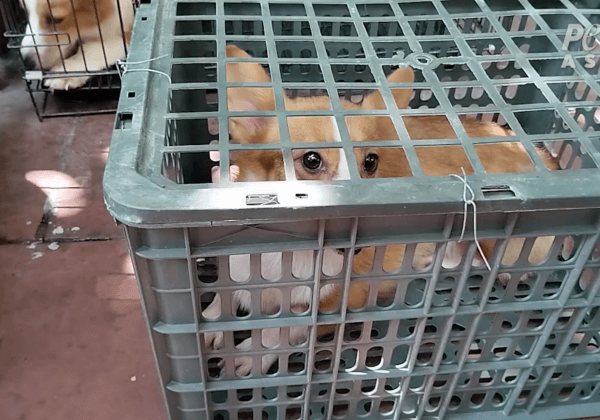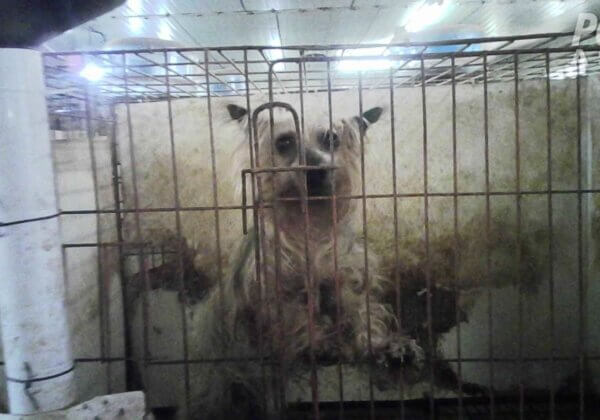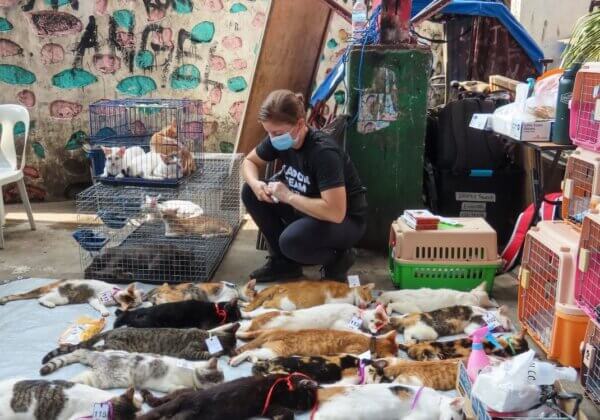The Pet Trade
Every time someone buys an animal from a pet store or a breeder, that takes a home away from an animal waiting in a shelter or trying to survive on the streets. Breeders, pet shops, and puppy mills fuel the companion-animal overpopulation crisis by bringing more animals into a world that’s already bursting at the seams with unwanted ones. The animals they breed and sell also commonly suffer from health problems and are forced to live in cruel conditions.
Breeding Trouble
There’s no such thing as a “responsible” breeder. Animal shelters are overflowing with loving, healthy animals who need homes, but breeders continue to bring litter after litter of animals into the world in the hope of winning show titles or making money by selling them.
These animals often suffer. Breeders regularly mate closely related animals in an attempt to pass down certain characteristics, which has led to genetic defects in virtually every breed. Because the gene pool is so limited, there are now more hereditary canine diseases than there are dog breeds. Deliberately breeding animals for distorted physical features—such as a flattened face, which makes it difficult for a dog to breathe—is also common and causes many purebred dogs to endure a lifetime of discomfort and even die young.
Puppy Mills: Misery on a Massive Scale
That “doggie in the window” may be cute but likely came from a puppy mill, where dogs are raised in cramped, crude, filthy conditions. In these extensive breeding facilities, animals are kept constantly confined and deprived of adequate veterinary care and socialization.
Female dogs are repeatedly impregnated, which puts an enormous strain on their bodies. Both mothers and their puppies are often malnourished and do not receive proper, if any, veterinary care. As soon as the puppies are weaned, they’re torn away from their mothers to be packed up and sold off—and the cruel cycle starts again.
Genetic defects are rampant in dogs from puppy mills, causing physical problems that require costly veterinary treatment and personality disorders that can lead to frustrated guardians who end up abandoning their dogs.
Pet Shops: Where Animals Pay the Price
Pet shops obtain the animals they sell from hellish breeding mills and treat them as if they were fashion accessories, selling them to anyone willing to pay. Many people impulsively buy animals from pet stores without knowing a thing about their needs, much less making a lifelong commitment to caring for them. Many animals who are purchased on a whim will be abandoned or die from neglect or improper care. Small animals such as birds, rabbits, mice, and other rodents are often mistakenly thought of as “starter pets,” but they have specialized needs and suffer terribly at the hands of uninformed buyers. “Exotic” animals like chinchillas, tarantulas, birds, reptiles, and other species are often stolen from their homes in the wild and trafficked around the world.
Pet shops are also notorious for selling sick animals, failing to provide them with proper veterinary care, keeping them in unsanitary conditions, and using inhumane methods to dispose of them.
What You Can Do
As long as animals are dying in shelters, there’s no excuse for breeding or buying them. If you’re prepared to offer a loving home for life, adopt from your local shelter—where animals of all different shapes, sizes, and breeds are waiting. Do your part to help curb the animal-overpopulation crisis—always have your animal companions spayed or neutered.










